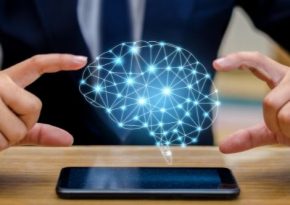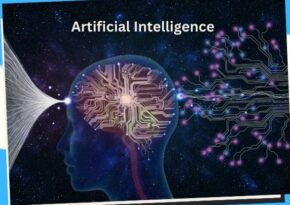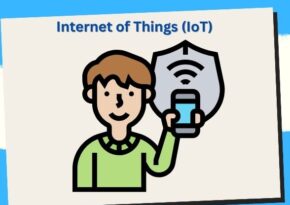
👩🏫 Shaping Tomorrow: AI’s Ethical Impact on Education and Learning 🚀
👩🏫 Discover how AI ethically transforms education and learning, propelling us into a future of innovation and knowledge sharing. Dive into the positive impact AI is making on the world of education.
🌟 The Healing Power of AI: Transforming Healthcare and Elevating Patient Outcomes 🤖🏥
The healthcare industry is on the cusp of a profound transformation thanks to the integration of Artificial Intelligence (AI). AI has emerged as a formidable ally in enhancing healthcare services and elevating patient outcomes. This article delves into the captivating world of AI’s role in improving healthcare and patient outcomes, exploring its significance, principles, applications, challenges, and the exciting future it promises.
Understanding AI’s Role in Healthcare
🤖 What Is AI’s Role in Healthcare?
AI’s role in healthcare is a dynamic partnership where artificial intelligence technologies are used to analyze, interpret, and manage medical data. AI assists healthcare professionals in diagnosing diseases, predicting patient outcomes, personalizing treatment plans, and improving administrative processes.
💡 The Essence of AI in Healthcare
The essence of AI’s role in healthcare can be distilled into several key principles:
- Accurate Diagnosis: AI enhances diagnostic accuracy by analyzing medical images, genetic data, and patient histories.
- Personalized Treatment: AI tailors treatment plans to individual patient needs and responses, optimizing therapeutic outcomes.
- Administrative Efficiency: AI streamlines administrative tasks, reducing paperwork and freeing up healthcare professionals’ time.
- Predictive Medicine: AI predicts disease outbreaks, patient readmissions, and medical events, allowing for proactive intervention.
- Data-Driven Insights: AI provides data-driven insights that inform clinical decision-making and improve patient care.
Applications of AI in Healthcare
🌐 Across Medical Specialties
AI has diverse applications across various medical specialties, enhancing healthcare services and patient outcomes:
- Medical Imaging: AI analyzes medical images, such as X-rays and MRIs, to detect abnormalities and assist radiologists in diagnosis.
- Drug Discovery: AI accelerates drug discovery by simulating molecular interactions and predicting potential drug candidates.
- Telemedicine: AI-powered telemedicine platforms enable remote consultations, improving access to healthcare services.
- Patient Monitoring: AI monitors patients’ vital signs and alerts healthcare providers to any abnormalities in real-time.
- Epidemiology: AI predicts disease outbreaks and assists in contact tracing during public health crises.
- Genomic Medicine: AI analyzes genomic data to identify genetic predispositions and guide personalized treatments.
Challenges in Implementing AI in Healthcare
🧩 The Complex Landscape
Implementing AI in healthcare presents several challenges:
- Ethical Dilemmas: Balancing the potential of AI with ethical considerations, such as privacy, consent, and bias, requires careful thought.
- Data Privacy: Handling sensitive patient data in AI-driven healthcare must adhere to strict privacy regulations and ethical standards.
- Algorithmic Bias: Ensuring that AI algorithms do not perpetuate or exacerbate biases in medical outcomes is a central challenge.
- Interoperability: Ensuring that different healthcare systems and AI technologies can communicate and share data is essential.
- Healthcare Professional Training: Preparing healthcare professionals to use AI tools and technologies effectively is crucial.
Ethical Considerations in AI-Enhanced Healthcare
🤝 Balancing Ethics and Innovation
AI-enhanced healthcare raises several ethical considerations:
- Privacy: Protecting patient data and respecting privacy rights is paramount in healthcare settings.
- Transparency: Transparency in AI algorithms and decision-making processes fosters trust and accountability.
- Informed Consent: Patients should be informed about and consent to the use of AI technologies in their healthcare.
- Bias Mitigation: Addressing algorithmic biases to prevent discriminatory healthcare outcomes is an ethical imperative.
- Accountability: Establishing clear lines of accountability for AI-driven healthcare decisions is essential for responsible integration.
The Future of AI in Healthcare
🚀 Beyond the Horizon
The future of AI in healthcare holds numerous exciting possibilities:
- AI-Powered Diagnostics: AI will become even more accurate in diagnosing diseases and identifying treatment options.
- Remote Monitoring: AI will enable remote patient monitoring on a broader scale, improving patient care.
- Drug Personalization: AI will guide the development of personalized medicine based on patients’ genetic profiles.
- AI-Augmented Surgeons: Surgeons will use AI systems to enhance precision and reduce surgical risks.
- Healthcare Access: AI will provide healthcare services to underserved and remote areas through telemedicine.
Conclusion
AI’s role in improving healthcare and patient outcomes represents a monumental shift in how we approach medical diagnosis, treatment, and patient care. By prioritizing accuracy, personalization, efficiency, and ethical considerations, we can harness the full potential of AI to enhance healthcare services while safeguarding the well-being and privacy of patients. As we navigate the evolving landscape of AI in healthcare, the principles of ethical AI integration will serve as our guiding light, ensuring that technology truly becomes a force for healing, innovation, and improved patient outcomes. The future of healthcare is not just about what we can treat but also how we treat, and AI is poised to play a transformative role in this journey toward a healthier world. 🌟🤖🏥
Related Queries
🎓 Nurturing Minds: The Ethical Role of AI in Education 🌟
👩🏫 Shaping Tomorrow: AI’s Ethical Impact on Education and Learning 🚀
🌐 Bridging Knowledge Gaps: Ethical AI in the World of Education 📚
🤖 Empowering Education: The Promise of Ethical AI Innovations 💡
📊 Learning for Good: Ethical AI Practices in Education Unveiled 🏆
🧠 AI and Education: Striking the Right Balance with Ethics 🤝
🏫 Ethical AI: Revolutionizing Education for a Brighter Future 🌈
📈 Ethical EdTech: Pioneering the Future of Learning with AI 🚀
🧒 Enabling Equity: Ethical AI’s Impact on Inclusive Education 🌟
💬 Ethics and Education: Unmasking the Potential of AI in Learning 📖
Save/Share this story with QR CODE
Disclaimer
This article is for informational purposes only and does not constitute endorsement of any specific technologies or methodologies and financial advice or endorsement of any specific products or services.
📩 Need to get in touch?
Feel free to Email Us for comments, suggestions, reviews, or anything else.
We appreciate your reading. 😊Simple Ways To Say Thanks & Support Us:
1.) ❤️GIVE A TIP. Send a small donation thru Paypal😊❤️
Your DONATION will be used to fund and maintain NEXTGENDAY.com
Subscribers in the Philippines can make donations to mobile number 0917 906 3081, thru GCash.
3.) 🛒 BUY or SIGN UP to our AFFILIATE PARTNERS.
4.) 👍 Give this news article a THUMBS UP, and Leave a Comment (at Least Five Words).
AFFILIATE PARTNERS

World Class Nutritional Supplements - Buy Highest Quality Products, Purest Most Healthy Ingredients, Direct to your Door! Up to 90% OFF.
Join LiveGood Today - A company created to satisfy the world's most demanding leaders and entrepreneurs, with the best compensation plan today.



 Business Technology, Finance Technology & Information Technology
Business Technology, Finance Technology & Information Technology





